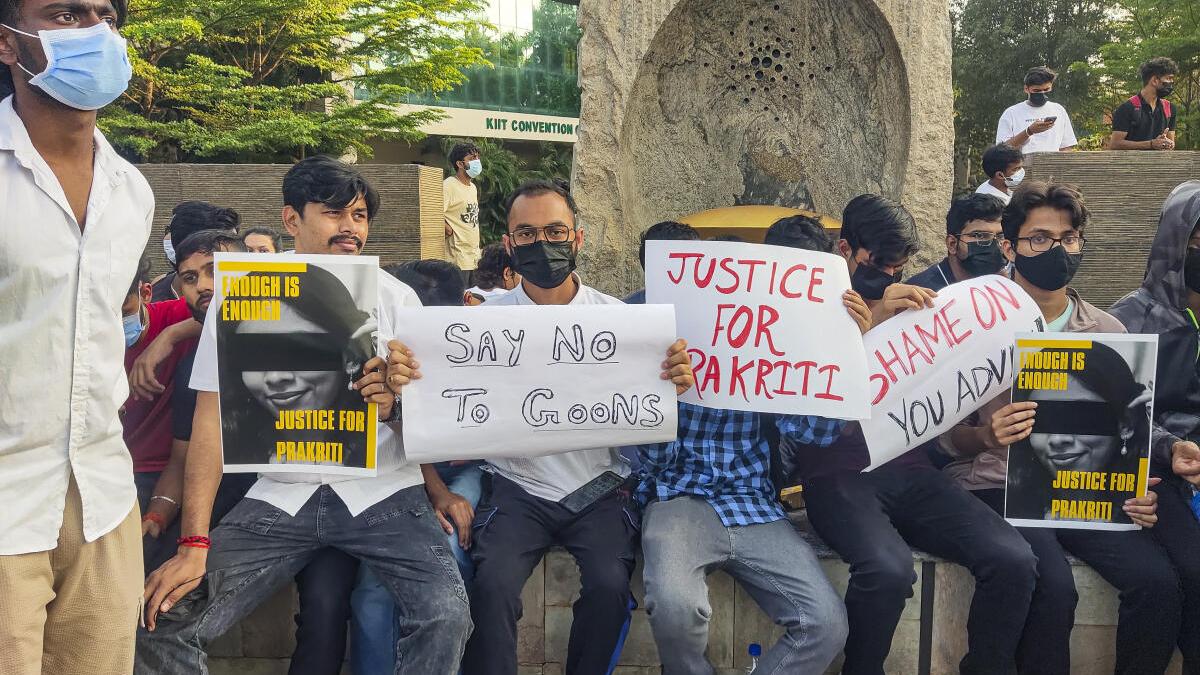The recent incident at Kalinga Institute of Industrial Technology (KIIT) in Odisha, involving the tragic death of 20-year-old Nepali student Prakriti Lamsal has drawn significant attention from both Nepal and India. In the wake of her suspected suicide, Nepali students at KIIT held protests demanding justice. However, it was reported that many students reportedly faced mistreatment and were forcibly evicted from their hostels.
The incident is likely to have significant implications for the future of India’s higher education sector, especially at a time when the country is striving to attract more foreign students. Notably, according to latest official data, Nepal accounts for the highest share of international students in India, comprising 28% of the total 46,878 foreign students in the country.
This unfortunate incident underscores the critical need to safeguard students’ rights and welfare in institutions while emphasising the responsibility of institutions to foster a safe and inclusive environment. Moreover, it also highlights some troubling trends in India’s higher education sector, where both private and public institutions play a significant role.
New control mechanisms
The rapid growth of private universities and colleges in India has significantly reshaped the higher education landscape, with private universities accounting for 26.3% of total university enrolments and privately managed colleges contributing to around 65% of college enrolments in the country. Many of these institutions adopt a regimented campus culture characterized by strict rules, rigid campus discipline, and highly structured routines.
These institutions often enforce discipline through a combination of policies and mechanisms that prioritise control over student rights and individual freedoms. For instance, many institutions establish detailed student codes of conduct outlining acceptable behaviour and disciplinary measures for violations, implement strict attendance policies, and often rely on campus disciplinary committees to monitor compliance.
Many private institutions impose stringent hostel regulations, including overly restrictive curfews, visitor restrictions, and surveillance of student activities, often using CCTV cameras and security personnel to monitor movements. Dress codes, rules governing public behaviour, protests, and even social media usage are enforced to control students.
Penalties for rule violations further underscore the highly controlled environment. While such measures may ensure order, they often raise concerns about the suppression of student autonomy and the lack of emphasis on fostering a more inclusive and rights-respecting campus atmosphere.
Interestingly, a related emerging trend in Indian higher education is the growing appointment of retired army and police officers to leadership roles in universities and colleges.This practice is not limited to private institutions but also extends to public universities. This shift raises important questions about the role of higher education institutions, particularly regarding the balance between campus discipline and academic freedom, as well as the potential implications for fostering an inclusive campus environment.
From barracks to academia
An increasingly prominent trend in Indian higher education is the growing appointment of retired army and police officers to leadership roles in universities. This shift reflects a broader transformation in the governance of higher education. While such appointments are not entirely new, their frequency and scale have grown significantly in recent years, raising important questions about the evolving priorities and challenges within India’s academic landscape.
Several notable examples illustrate this trend. From Major Dhyan Chand Sports University in Meerut to Aligarh Muslim University, Manipal Academy of Higher Education and Maharashtra University of Health Sciences in Nashik, it’s a long list of universities that have seen leadership appointments of former armed forces and police officers. In 2018, it was reported that ten retired Army personnel were appointed as registrars of universities in Bihar, with two assuming their roles later.
What sets this trend apart from the past is its growing scale and the fact that many of these appointees lack a background in teaching or research. While their leadership skills and administrative experience are often highlighted as assets, their limited academic credentials raise questions: especially about their ability to navigate the complexities of balancing both academic and social factors. This trend reflects a broader shift in the priorities of Indian higher education institutions, where administrative control and discipline are often emphasised over academic freedom and intellectual growth.
While the appointment of retired military and police officers may bring structure and efficiency, it also underscores the need to strike a balance between governance and the core mission of universities: fostering critical thinking, creativity, and a vibrant academic culture. As this trend continues to grow, it will be essential to evaluate its long-term impact on the direction of higher education in India.
The case for democratic campus governance
The marginalisation of student voices in universities and colleges, particularly in private institutions, represents a significant democratic deficit in campus governance. While States like Kerala have integrated student representation in executive bodies such as syndicates of some of the universities, such practices remain an exception rather than common practice in other Indian states. Naturally, the prevalence of institutional leadership approaches that prioritise control over dialogue create an environment where student perspectives are systematically overlooked or suppressed.
The KIIT incident serves as a stark reminder of the potential consequences of this authoritarian approach to campus management. As Indian higher education continues to evolve, the integration of student voices into institutional decision-making processes must be recognised as essential for creating more inclusive, responsive, and democratic academic communities.
(Eldho Mathews is a Programme Officer (Internationalisation of Higher Education) at the Kerala State Higher Education Council, India. He is also a member of the Program for Research on Private Higher Education, Department of Educational Policy and Leadership, State University of New York at Albany)
Published – February 20, 2025 09:21 pm IST
